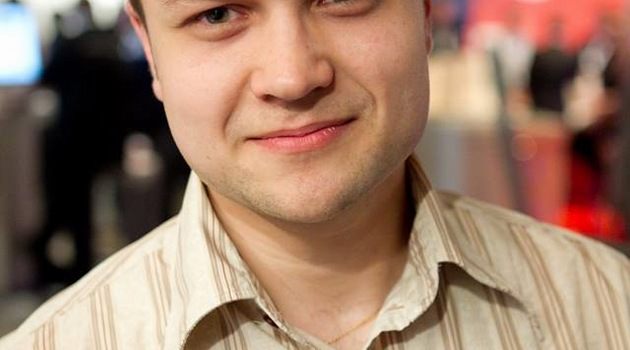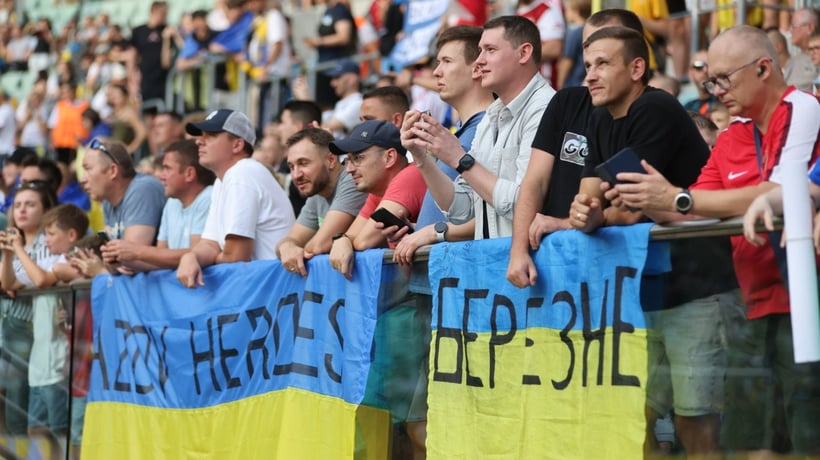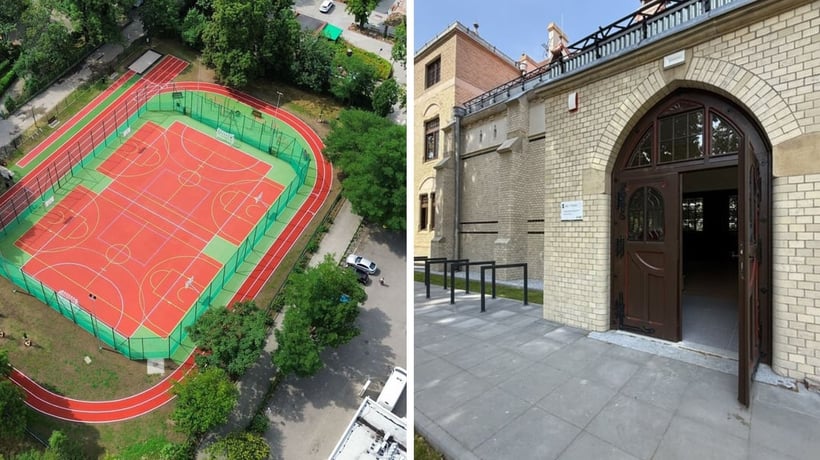He first came to Wroclaw in 2001 to attend a computer-science contest. He met his wife during a driving course and he asks his employees to come to the office after a good night's sleep! Dmitrij Żatuchin is the ninth guest of our "Foreigners in Wroclaw" series.
"I was born in the present-day Ukraine, and in 1998 my father came up with the idea to "export" my family to Poland. The reasons were obvious: safety and better future for the children", said Dmitrij. Then moved to Słubice in the Lubuskie Province, which is a town adjacent to the German city of Frankfurt an der Oder. When the time came to go to a university, he chose Wroclaw. "I chose computer science at the Wroclaw University of Technology. This field of study gave enabled me to find a job right after school, so I could make a living by myself. My music is musical: my mother plays the piano, my brother plays the accordion, and my father plays the guitar. I think that in a way this innate creativity, combined with a technical orientation enabled me optimize my time and reconcile different duties that I assumed at that time", he explained.
In Wroclaw Dmitri also earned the PhD degree. He started his own software house (dook.pro) and a platform for learning foreign languages (edustation.pl). "Edustation is not a course recorded on a CD or anything comparable to standard courses. We aimed at teaching with a limited role for grammar. After all, as children we learn to speak by repeating what others say and after some time we notice certain structures and relationships. Only during this conscientious stage it is much more effective to organize knowledge by using a grammar book. Most of all, we will not be tired of it; on the contrary, we will be interested in the rules that we have learned intuitively", said Dmitrij.
Each of us has a different life experience and motivation and it would make no sense that there is only one effective method to learn a foreign language. "Edustation is a place where many various methods, courses, and materials can coexist. After all, Appstore and Google Play do something similar: you can find a dozen or so calendar applications, since people like different things. This is what inventors are for!" Dmitrij added with a smile.
Actually, formally Dmitrij is not a foreigner. As he explained, Ukrainian law does not allow dual citizenship and by getting a Polish passport he had to give up his Ukrainian citizenship. "Luckily my family is not big and my parents live in Poland. Besides, being a foreigner in Wroclaw is such a curious oxymoron; historically, the entire Wroclaw consists of foreigners. Perhaps this is why the city is so beautiful and charming. Personally, I don't like the word "tolerance"; it's a kind of a trap because it means that we do not have to interact with people of other nationalities and it's enough to tolerate them. I would prefer the words "assimilation" and "cooperation". In my opinion, Wroclaw quite successful in this regard as it offers many opportunities to both native Poles and citizens of other countries. I have never had any problems in this city.
Dmitrij's company that develops software employs a team of 20 persons. The greatest achievements of the Do Ok include development of the website www.culture.pl for the Adam Mickiewicz Institute and a system for patient-doctor communication for the largest Dutch cardiology clinic. "In the last four years we completed over 80 different projects, which also enables us to develop Edustation as it still requires investment", he said.
Dmitrij often attends events and is involved in initiatives connected with new technologies, entrepreneurship, and startups: "It's great that there are such events that promote the idea of networking among Poles and foreigners living in Wroclaw. You can practice your English and absorb the enthusiasm of the participants. I believe that there is room for even more such projects, organized with or without the support of the City council. The art of sharing is still lacking, but it's obvious that we reach a certain level or position thanks to other people and there is no reason to believe that we owe everything to our own efforts".
Dmitrij insists that this opinion is right and I cannot help but agree with him. A new quality of organizational culture can be an important source of competitive advantage and be a decisive factor of success of individual persons, companies, and cities. Given the constraints of the contemporary economy, which is described as knowledge-based economy, cooperation and teamwork determine the possibility of gaining measurable benefits.
There are so many fantastic languages in the world that everyone will certainly find one for himself or herself. You already know the most difficult language in the world and the rest should not be a problem!
Marcello Murgia









